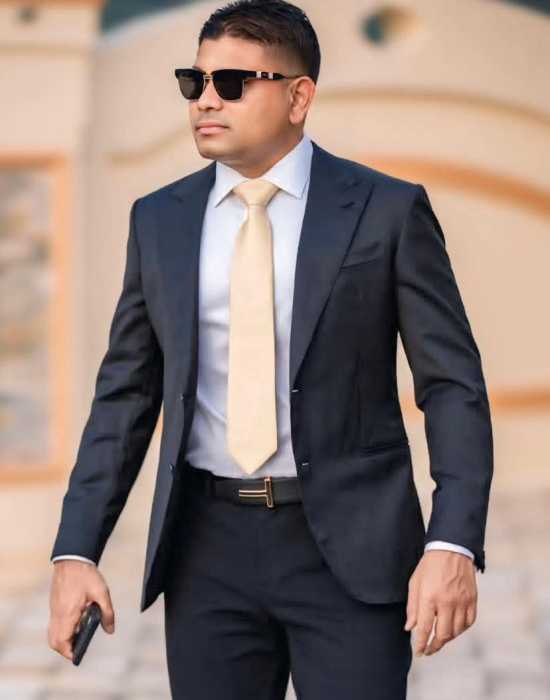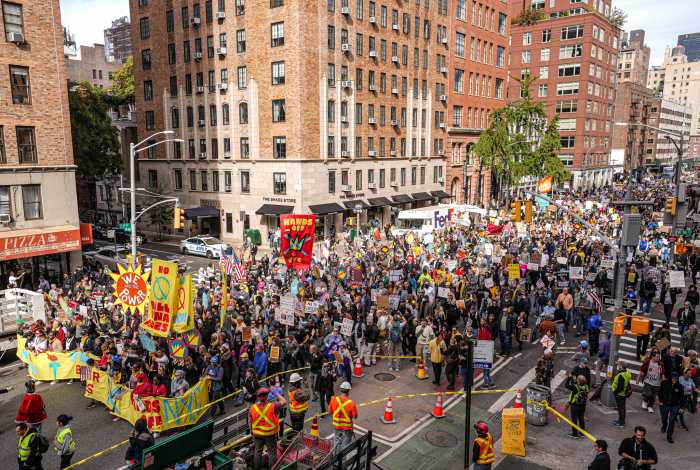Joan Gibbs, an activist and attorney who used her power — often on a pro bono basis — to fight HIV/AIDS and advance racial justice, women’s rights, and LGBTQ rights, died on March 14 at the age of 71.
Gibbs was born in New York City, but spent her early youth in North Carolina before moving back to New York when she was 14 years old. By the time she was in high school, she became involved in activist movements, joining the Student Mobilization Committee to End the War in Vietnam, the Young Socialist Alliance, and a Black student group, she said in a 2012 interview with ACT UP’s Oral History Project. Gibbs earned a Bachelor’s Degree from Empire State College and a JD from Rutgers University.
Gibbs said she joined ACT UP, an activist group fighting to end AIDS, beginning in the 1980s when she attended a demonstration on Wall Street. She served as a legal observer for ACT UP and represented the group in court on multiple occasions, including when members were arrested in 1988 for occupying the New York City health commissioner’s office to protest the undercounting of individuals living with HIV, according to the National Lawyers Guild’s New York City Chapter. Gibbs also represented the Haitian American Anti-Defamation League when the Centers for Disease Control and Prevention (CDC) deemed the group to be a risk for HIV/AIDS.
“ACT UP, to me, was one of the best expressions of progressive politics in its practice that has existed since, I would say, the Civil Rights Movement,” Gibbs said.
Among others, Gibbs represented Black Liberation Army activist Sundiata Acoli, who spent decades in prison for the 1973 murder of New Jersey State Trooper Werner Foerster. Gibbs wrote a letter to California Representative Maxine Waters in 1998 to criticize the lawmaker’s vote in support of a resolution calling on Cuba to extradite Assata Shakur, also known as Joanne Chesimard, who was also convicted of the same murder as Acoli and fled to Cuba. Waters subsequently said she made a mistake and wrote a letter to then-Cuban president Fidel Castro saying she opposed the resolution.
Gibbs’ legacy extended far beyond her legal work. She was a founding leader of Dykes Against Racism Everywhere (DARE), which launched in 1979 in response to the murder of demonstrators in Greensboro, North Carolina who were protesting racism.
“We would try to tell people,” Gibbs recalled during the ACT UP interview, “‘You need to organize, reach out,’ explicitly to the lesbian and gay community, right? So the group was very heterosexist, slightly homophobic, and so then we decided, ‘Well, listen, we should start a group, and then we can organize people going to these demonstrations.’ And so that’s how we started. So we started basically to challenge not only racism within society broadly, but also at a time within the lesbian and gay community to raise consciousness around racism.”
During her ACT UP interview, Gibbs also recalled launching Azalea, a magazine for women of color, in the 1970s. She said she started the magazine “because at the time people were constantly complaining about how the, quote, unquote, white feminist and lesbian publications weren’t publishing writings by Black and Latina women principally.”
She added: “So then I decided, well, why don’t we just start our own magazine and stop complaining? There’s no point in complaining constantly.”
Upon graduating from law school, Gibbs worked with the Center for Constitutional Rights, the American Civil Liberties Union, the Women’s Rights Project, and then the Center for Constitutional Rights again. She spent 28 years working at Medgar Evers College, where she served as the general counsel for the Center for Law and Social Justice.
At the Center for Constitutional Rights, Gibbs filed a lawsuit against the New York State Department of Corrections after an incarcerated individual living with AIDS was barred from participating in a family reunification program in 1987, according to the National Lawyers Guild’s New York City Chapter.
Kenyon Farrow, a Black gay writer and activist, said he first met Gibbs about 20 years ago when he was a young activist in New York City.
“She was so unassuming and down to earth, I didn’t realize I was looking into the face of a movement giant,” Farrow told Gay City News. “Her work as a movement lawyer crossed so many critical areas of work — from representing Sundiata Acoli to ACT UP, and her later work teaching at Medgar Evers. Instead of leveraging her relationships and work to become a movement celebrity in a way that is so pervasive now, she remained committed to freedom and liberation of oppressed people above and beyond any personal recognition or fame her impact could have brought her. She is missed and her example of being committed to the work before ego is sorely needed now.”
Author Sarah Schulman, who interviewed Gibbs for ACT UP’s Oral History Project, remembers her as an individual who gave back to others.
“Joan was a kind person who devoted her life to creating community on all levels,” Schulman told Gay City News. “Whether it was her work as a social justice attorney, or personally as a volunteer at Rikers, or housing friends with AIDS until their deaths. As a poet, she coalesced poets. As a lesbian, she co-built probably the first expressly anti-racist lesbian group. She was beloved by ACT UP for all her pro bono legal work in the streets and in the courts. A woman of great compassion.”
Kazembe Balagun, a writer, curator, cultural historian, and activist, worked with Gibbs at the Brecht Forum from 2008 to 2013 and looked up to her as a queer activist.
“I remember the first event I organized at the Brecht, ‘James Baldwin: Life and Legacies,'” Balagun said. “Joan enthusiastically participated along with Kenyon Farrow, Tourmaline, Anika Lani and Ajamu Sankofa. She was open funny honest and always led with integrity. She always made time for me and will be dearly missed.”
Black Women Radicals, a Black feminist advocacy organization, also mourned Gibbs.
“We are saddened to hear about the passing of Joan Gibbs,” the group wrote on Instagram. “Gibbs was an attorney, activist, writer and speaker. She was active in the US movement for social and economic justice since the late 1960s, most significantly the anti-racist, women’s and LGBT movements.”
Out-FM, a weekly progressive, intersectional queer radio show airing on 99.5 FM and wbai.org, is planning to devote its entire program to Gibbs on March 26. The show runs from 8 p.m. to 9 p.m. ET.
There will be a memorial for Gibbs in May. Details are forthcoming.













